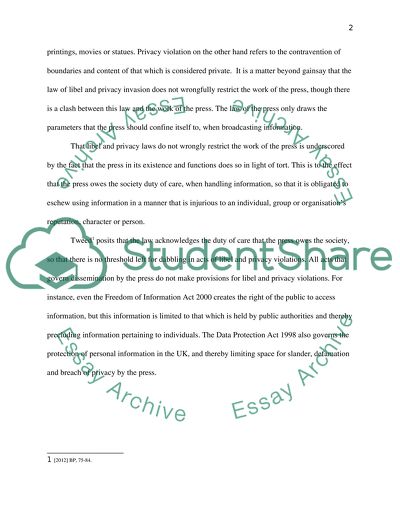Cite this document
(“Free Speech and the Defamation Bill 2012 Essay Example | Topics and Well Written Essays - 1500 words”, n.d.)
Free Speech and the Defamation Bill 2012 Essay Example | Topics and Well Written Essays - 1500 words. Retrieved from https://studentshare.org/law/1467570-free-speech-and-the-defamation-bill
Free Speech and the Defamation Bill 2012 Essay Example | Topics and Well Written Essays - 1500 words. Retrieved from https://studentshare.org/law/1467570-free-speech-and-the-defamation-bill
(Free Speech and the Defamation Bill 2012 Essay Example | Topics and Well Written Essays - 1500 Words)
Free Speech and the Defamation Bill 2012 Essay Example | Topics and Well Written Essays - 1500 Words. https://studentshare.org/law/1467570-free-speech-and-the-defamation-bill.
Free Speech and the Defamation Bill 2012 Essay Example | Topics and Well Written Essays - 1500 Words. https://studentshare.org/law/1467570-free-speech-and-the-defamation-bill.
“Free Speech and the Defamation Bill 2012 Essay Example | Topics and Well Written Essays - 1500 Words”, n.d. https://studentshare.org/law/1467570-free-speech-and-the-defamation-bill.


